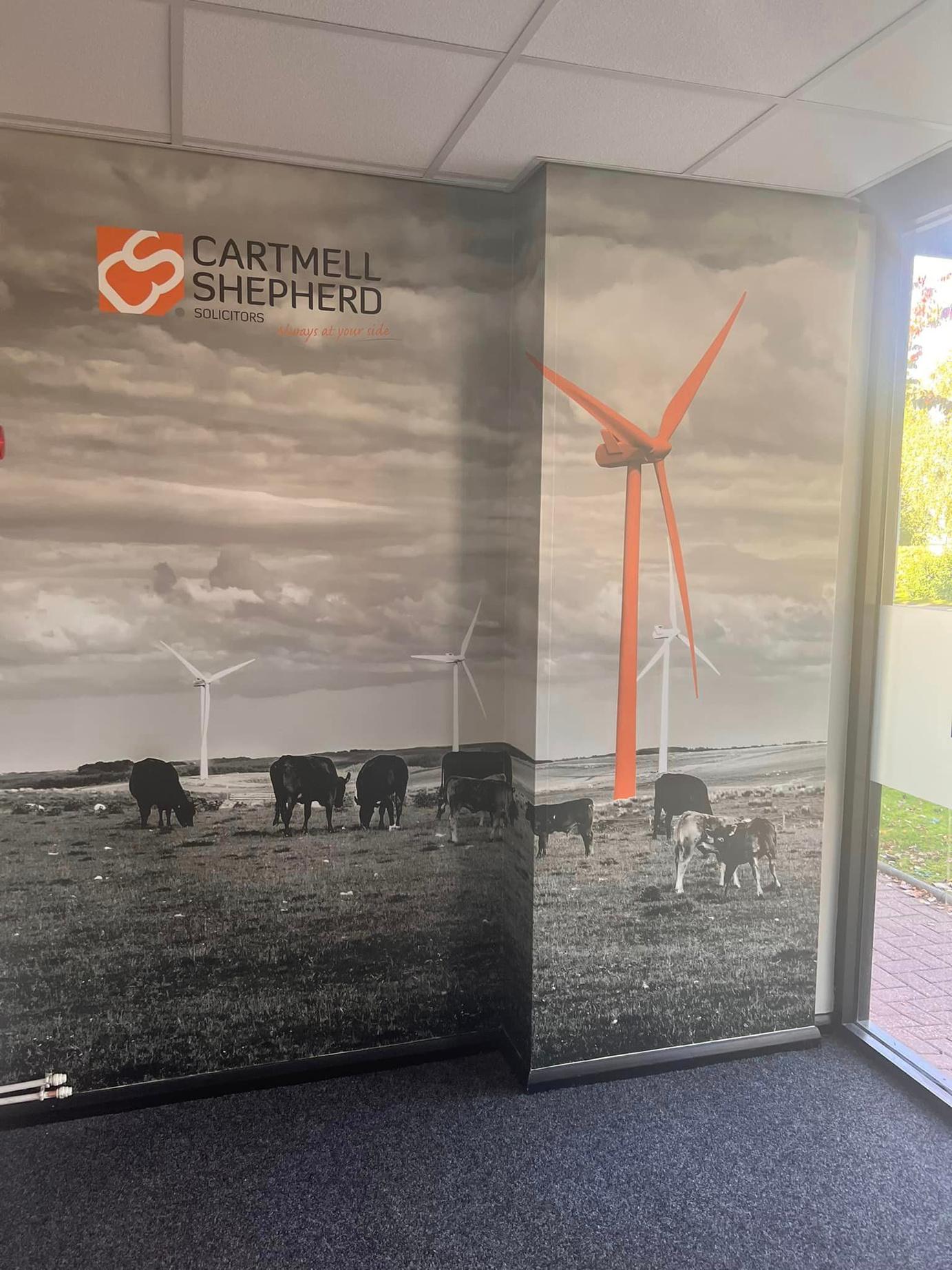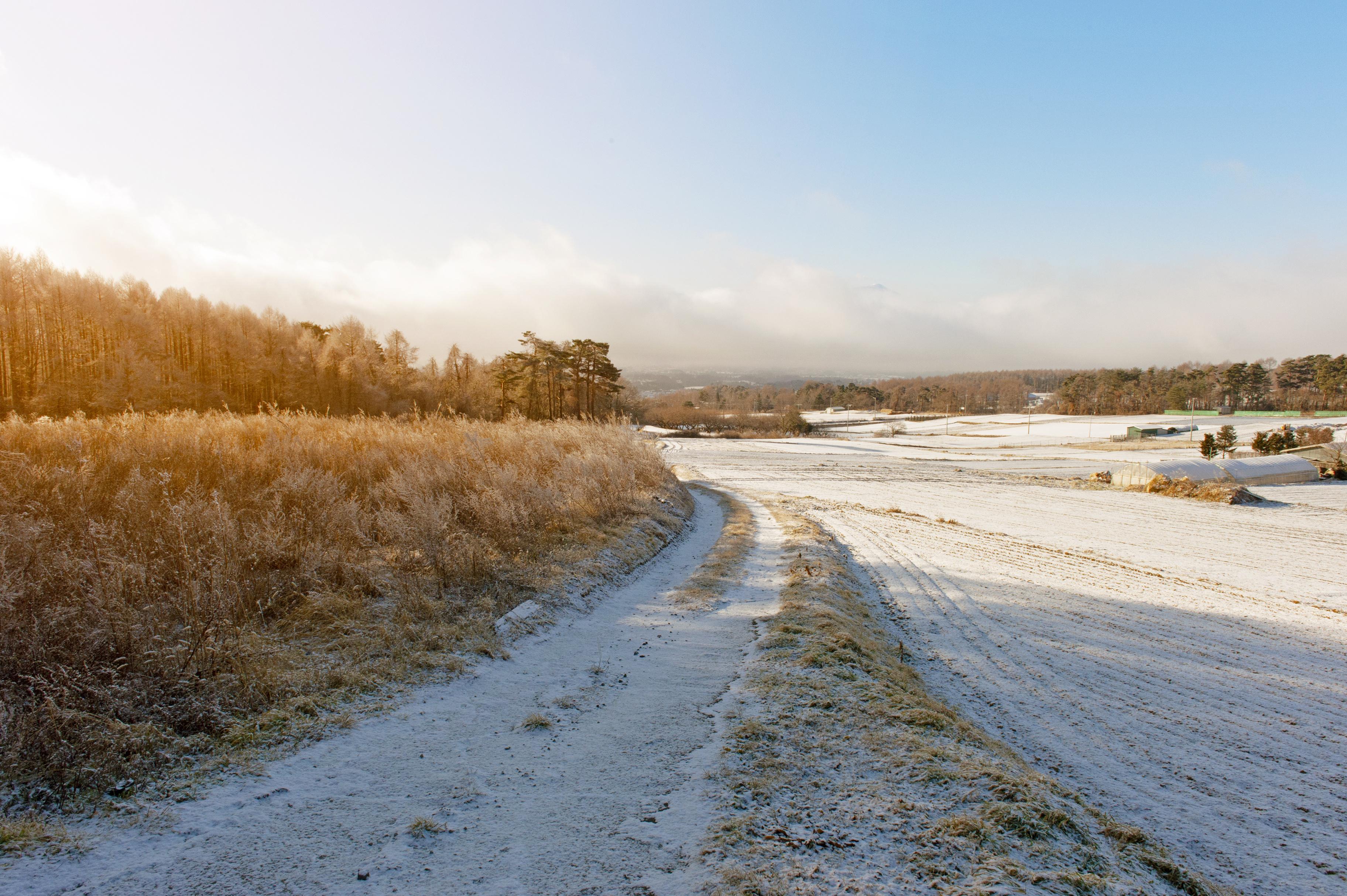


"Some decisions stay the same but our advice moves with the times"




"Some decisions stay the same but our advice moves with the times"
Cartmell Shepherd Solicitors’ Agriculture and Estates department has been named as one of the best in the country by a top UK legal guide
It is the third consecutive year that the team has been ranked in the top tier of legal firms in The Chambers UK Legal Guide.


The Agriculture and Estates team, which is led by Jonathan Carroll, provides advice and expertise to clients across Cumbria, Northumberland and nationally
Jonathan said: “We are delighted that the team has been recognised by the Chambers UK Legal Guide for the quality of its work
“It reflects our commitment to ensuring our clients get the best possible legal advice in all matters of agricultural law ”
The Chambers UK Legal Guide ranks lawyers and law firms throughout the UK, with its 2023 edition published on Thursday (October 20) Chambers and Partners has been the leading source of independent legal market intelligence for over 30 years, with more than 70 researchers ranking the best law firms and solicitors working in the UK legal market
The guide highlighted three members of Cartmell Shepherd’s agricultural team for individual recognition, with Mark Jackson, Katherine Pretswell Walker and Jonathan all featuring in the rankings
Cartmell Shepherd’s Agriculture and Estates team, which also includes associate solicitor Bethan Griffiths, and solicitors Holly Berwick and Emma Blamire, advises on all aspects of agricultural law including farm sales and purchases, succession planning, agricultural tenancies, development and option agreements, and compulsory purchases
The department’s success follows its inclusion last month in The Legal 500, a UK professional law ranking which analyses the capabilities of law firms across the world
The latest edition of the guide praised the team’s specialist, in depth knowledge and experience, naming Jonathan and Mark as ‘leading individuals’, and Katherine as a ‘rising star’. The department also retained its Tier 1 rating in The Legal 500 rankings
Pictured: Mark Jackson, Katherine Pretswell Walker & Jonthan Carroll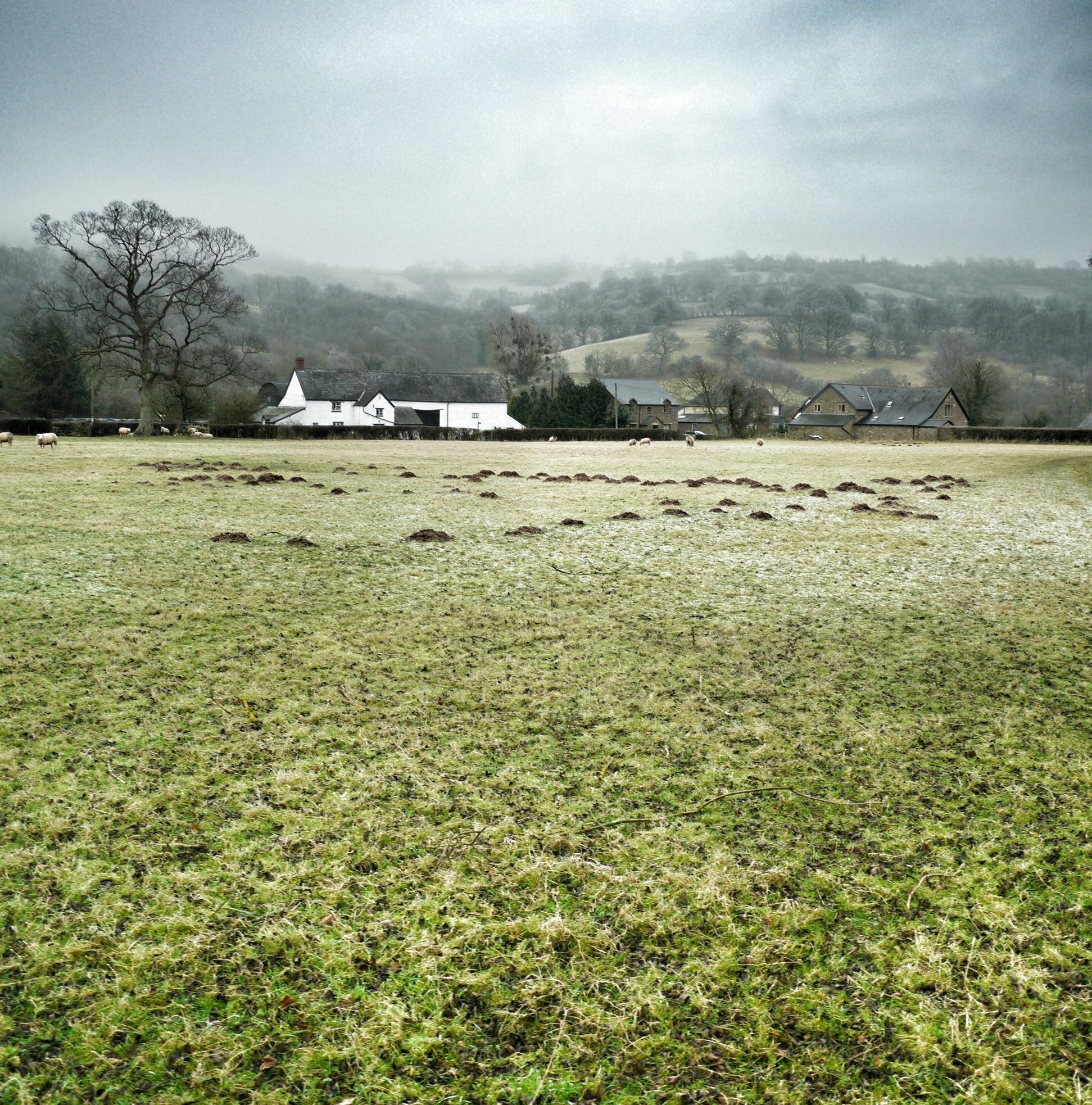
Rebecca Armstrong, a Contentious Trust and Probate Specialist with Cartmell Shepherd Solicitors, said the judgment by the Supreme Court on Wednesday (October 19) would impact farming families who find themselves in legal battles over who will inherit the farm

Rebecca said: “The ruling was unusual in that it offered the parties a choice as to how the case could be resolved, with remedies deemed fair and equitable to both parties
“These high profile cases are a reminder that people need to be clear about their plans for the future Leaving the future of your farm unresolved can lead to animosity and upset between family members, which can cause years of legal battles and, in some cases, the sale of the farm
“The principle of proprietary estoppel within the farming community is essentially a parent promising a son or daughter that: ‘One day, all this will be yours ’ It’s a promise or assurance to another person that they have or will be given an interest in property which that other person then relies upon to their detriment
“In farming families, that can mean the son or daughter working long hours for low rates of pay for many years on the promise that they will inherit the farm after their parents’ death If, as in this case, that doesn’t happen, then it can lead to legal fights over what they believe is their rightful inheritance ”
The case heard by the Supreme Court was brought by a son (Andrew) against his parents (David and Josephine), who own the farm In Partnership with his parents, Andrew had lived and worked on the farm for 32 years since leaving school, earning a basic wage and living in a property on the farm Andrew had been promised by his parents that he would inherit a substantial but unspecified share of the farm, along with his two siblings.
Following a deterioration in the family relationship, David and Josephine changed their wills, disinheriting Andrew. The farming partnership was ultimately dissolved and Andrew forced to leave the farm property where he and his family lived.
Andrew took the case to court where the judge awarded him a lump sum based on his expected inheritance; however, his parents argued that it should have been calculated on his contribution to the value of the farm or his loss of opportunity to work elsewhere. They said the sum should be based on what he had expected to receive on his parents’ death.
The Supreme Court ruled that the farm should either be put in trust for the three children to inherit after their parents’ death as originally promised or that Andrew is given a lump sum which reflects the fact he has received his inheritance before his parents’ death.
Rebecca, who is an Associate Solicitor with Cartmell Shepherd’s Contentious Probate team, said: “Each case is dependent on its specific facts, but this ruling does set a precedent in respect of the flexibility the Courts have when determining matters. It ensures that Andrew’s expectations are met but not exceeded and provides the parties with options which could avoid the potential sale of the farm.”
A LANDMARK legal ruling could have far reaching implications in disputes over the future of family farms

Agri Expo is the UK’s largest autumn livestock showcase and the place where the farming community meet and compete. This years event was hosted by Harrison & Hetherington at Borderway Mart, Carlisle and took place on the 28th October 2022.


Two seminars took place throughout the day, the first being the future of farming in Northern England which addressed the challenges farmers are facing within the agricultural sector, updates on the agricultural transition plan with a question and answer session from the audience to key speakers from top ministerial departments

The second seminar was a live debate exploring the common themes and challenges faced by our next generation within the agricultural industry today

The panel featured individuals from the Farmstock Futures programme, which was developed by the H&H Group to give the next generation a voice and platform to network and gain industry knowledge from sectors of the agricultural industry
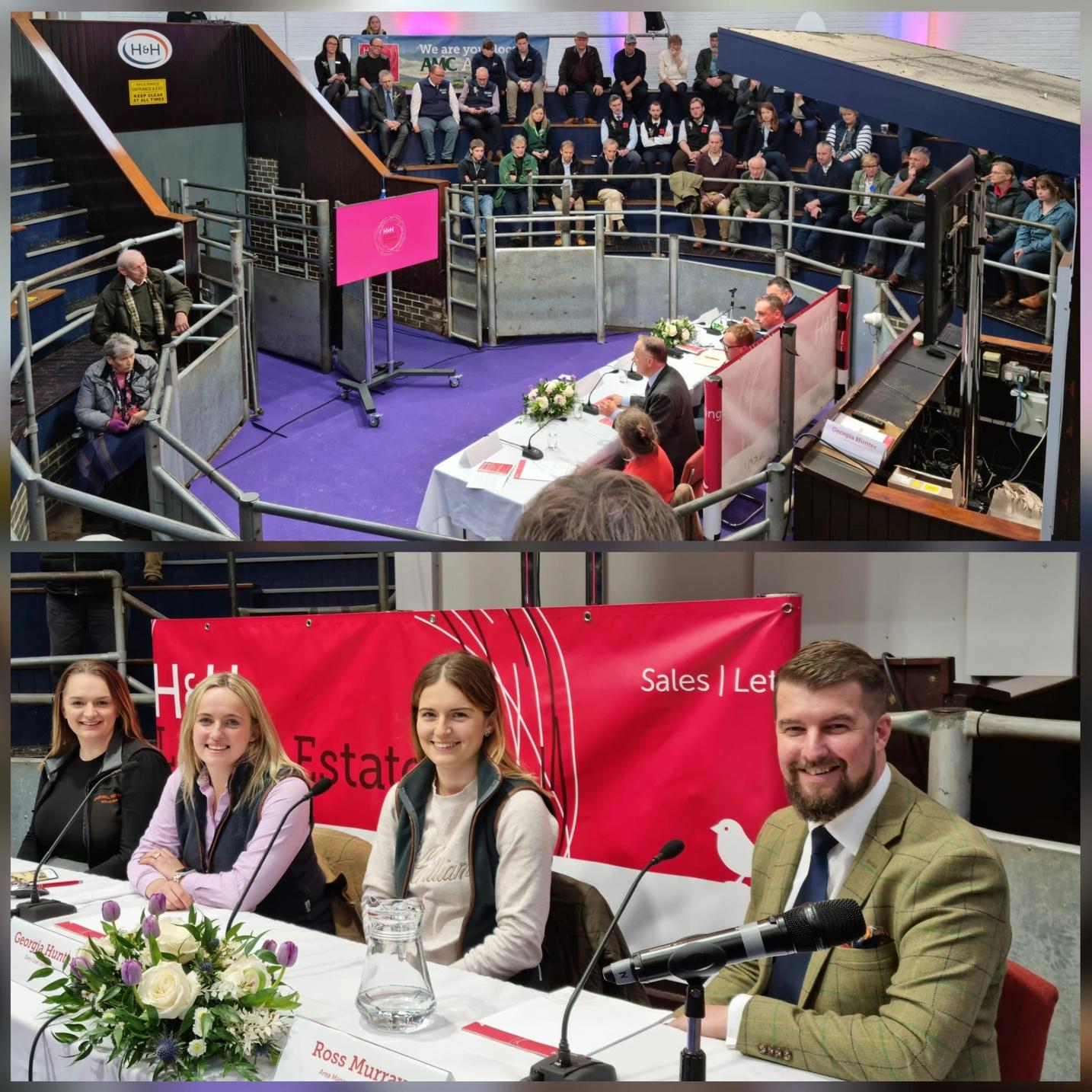
The panel included our very own Emma Blamire, Solicitor alongside Georgia Hunter (Dairy Goat Farmer, Ravenstonedale) and Ross Murray (Area Manager, Agri King)
The lively debate was a great opportunity to bring together young people who are all paving a career for themselves within the industry, whatever the sector. With so much uncertainty, it was interesting to hear the panellist’s views on the challenges the next generation face and how they can pull together
Farmstock Futures is not just about seminars and panel events, it’s the driver for engaging the new generation and their own ideas, knowledge, skill sets and experiences to work with the wider industry so the research gathered can help the industry be heard and gain the collaborative support for each other in so many ways and a collective voice

The next Farmstock Futures event will be on 25th November at Smithills Open Farm, Bolton
You can learn more on Farmstock Futures and their events via https://farmstockfutures uk/
Government targets for renewable energy generation will require an additional 219,000 acres of agricultural land by 2040 This is according to the Central Association of Agricultural Valuers (CAAV), which has warned that these targets cannot be met without regulatory changes
The CAAV has calculated that in order to meet the targets, the UK's total installed renewables capacity must reach 70GW by 2040, which will require an extra 4 3GW of energy from onshore wind farms and an extra 3 9 GW from solar photovoltaic (PV) installations
Each MW of solar PV energy requires 3 5 acres, and each MW of wind energy requires 1 2 acres, for equipment such as turbines, foundations, transformers and tracks This means that a total of 5,000 acres for wind energy and 14,000 acres for solar PV energy are required to achieve the 70GW target
However, the CAAV has also calculated that the five fold increase in solar PV capacity suggested by the Government in its Energy Security Strategy would require an additional 200,000 acres by 2035
In evidence submitted to a House of Commons Business, Energy and Industrial Strategy Committee inquiry, the CAAV warned that the rate at which infrastructure for renewable energy capacity is being installed falls far short of what is required by the Energy Security Strategy
In order to accelerate the installation of renewables capacity on agricultural land, the CAAV claims that a regulatory overhaul is needed to achieve a new balance between the competing demands of food security, renewables, carbon sequestration and environmental protection.
The Growth Plan 2022, which was published in September 2022, included a pledge to “unlock the potential” of onshore wind energy by relaxing planning consent rules that have effectively prohibited the installation of new wind farms since 2015 Relaxations are likely to include reducing the complexity of environmental assessments and reforming regulations that protect habitats and species However, as the number of renewable energy projects increases, infrastructure for the transmission and

Beef farmers are being held back from achieving net zero carbon emissions by financial barriers and policymaker indecision This is according to a study carried out by the University of Exeter, Rothamsted Research and the Ruby Country Net Zero Beef Farmers Forum, which includes beef farmers in Devon's 'Ruby Country' and adjacent areas The study's findings will form part of the evidence for the new Devon Carbon Plan, which outlines the county’s path to achieving net zero by 2050 at the latest
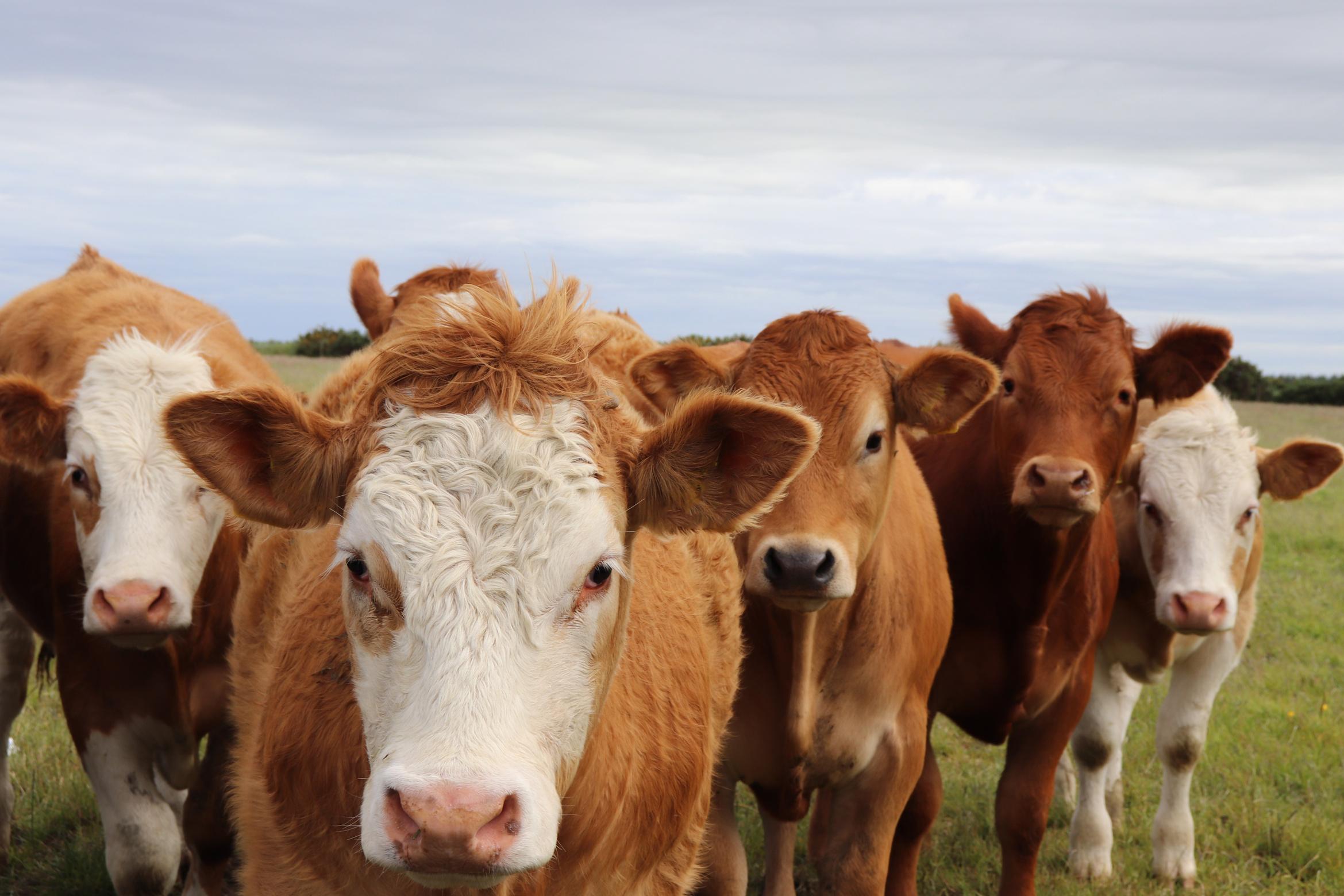
Beef farmers who took part in the study were supportive of focusing on environmental issues in agriculture and land use and willing to make changes This is demonstrated by their adoption of sustainable farming practices to promote good soil health and biodiversity Examples include planting hedges and raising low input grass fed cattle
However, beef farmers' support was tempered by a desire for policymakers to understand their need to make a living, particularly given current financial challenges Agro forestry schemes were cited as an example These schemes reward farmers for combining trees and shrubs with crop and livestock farming systems in the long term, providing little benefit to those struggling with cash flow Farmers also criticised a 'one size fits all approach' to net zero as unworkable
The study highlighted specific practical problems for farmers For example, concerns were raised about how to secure grants and planning permission for large scale infrastructure and funding for specialist equipment, and whether they will be rewarded for work already carried out
Farm business consultants Andersons has warned that inflation in agriculture ('agflation') will remain elevated for the rest of 2022 and beyond. This is mostly due to input costs soaring to levels not experienced in decades, which has been attributed to the conflict in Ukraine According to Andersons, farmers will face difficult decisions on cropping and business viability should they fail to achieve higher prices for their output in the coming months
Andersons estimated that agflation fell slightly but remained above 23% from June to July 2022 Output prices and agflation rose at roughly the same rate over the four months to June, before accelerating in July and August. This is partly due to retailers and foodservice providers' reluctance to pass higher costs on to already struggling consumers Energy bills and consumer inflation are forecast to increase further before the end of the year, worsening the situation Rising energy prices will also continue to affect agflation in relation to fuel, fertiliser and feed costs.
Certain agricultural sectors have experienced agflation busting increases to output costs For example, the dairy sector benefited from a 41% rise in milk prices over the 12 months to July 2022 and cereal prices rose by 29% over the same period In contrast, livestock prices increased by between 10% and 19% and egg and fresh vegetable prices fell
Farmers in all sectors received an advance on basic payment scheme (BPS) payments in July 2022. However, the value of BPS payments is falling and they will be worth 35% less in 2023 than in 2020
Beef farmers’ net zero ambitions held back by financial and practical barriers
UK cheese exports to the EU are showing signs of recovery following a fall in export volumes due to the introduction of post Brexit trade rules Figures from the AHDB have revealed that UK cheese exports increased by 25% between January and June 2022 compared with the same period in 2021 Cheese was the only dairy category to record an increase in export volumes in the first half of 2022 The AHDB has warned that although cheese exports to the EU have improved, it could still take some time before volumes return to pre Brexit levels.
Fertiliser supplies are expected to tighten further due to the impact of rising gas prices on ammonium nitrate plants. A growing number of plants in Europe that supply ammonium nitrate to fertiliser manufacturers in the UK have been forced to either partially or completely shut due to high gas prices, which is impacting fertiliser supply levels Growing demand and the shortage of fertiliser is also leading to higher prices for the agriculture industry, while the price of nutrients imported into the UK, such as phosphorus and potassium, has also increased.
The Scottish Government has warned that the UK's Free Trade Agreement with New Zealand will be damaging to Scottish farmers and food producers In particular, the agreement allows larger quantities of produce to come into the UK tariff free, meaning Scottish farmers will be at a disadvantage compared with their New Zealand counterparts. The Scottish Government has also claimed that the UK's agreement does not include the same level of safeguards for domestic producers compared with those secured by the EU in its own trade deal with New Zealand In the first year of the agreement, the UK will allow 12,000 tonnes of beef to enter from New Zealand, while the EU has agreed to just 3,333 tonnes.

Trade deal with New Zealand damaging for Scottish farmers
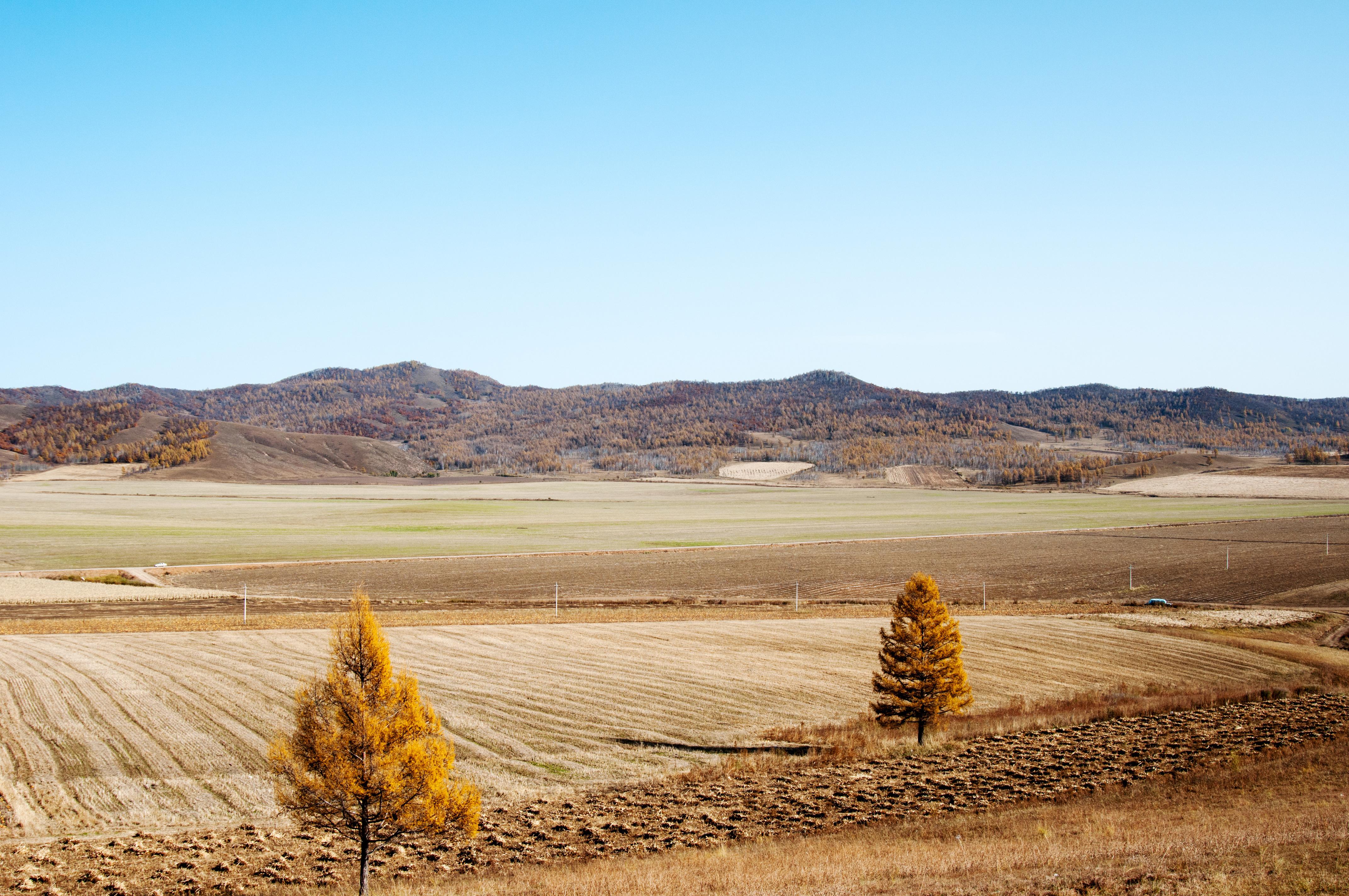
Defra has published a call for evidence to collect feedback from across the UK agriculture industry on how to tackle methane emissions from livestock The call for evidence will explore how new types of animal feed products with methane supressing properties can help reduce greenhouse gas emissions It is also seeking views on barriers that could prevent the introduction of methane suppressing feed products, as well as potential solutions and Government interventions that could help accelerate uptake. The deadline for responses is 15 November 2022
Figures from the Agricultural Engineers' Association (AEA) have revealed that tractor registrations in the UK fell in July 2022 to below the seasonal average Overall, there were 973 tractor sales in the UK in July 2022, down 4 7% year on year and 17% below the previous five year average According to the AEA, the impact of supply chain challenges on lead times was responsible for the fall in tractor sales The figures have also revealed that 7,393 tractors were registered between January and July 2022, which is a fall of 6% compared with 2021 but still slightly above average
A study from Rothamsted Research and the University of Reading has revealed that spring hay yields in the south of England have fallen by around 35% over the last century due to climate change. In addition, yields are forecast to fall by a further 20 50% between 2020 and 2080 The study is based on data collected between 1902 and 2016, which found that warmer and drier autumns and winters are leading to lower spring hay yields The study has also warned that since spring hay is used to feed livestock in the winter and during summer droughts, falling yields are a significant challenge for farmers.
yields fall by a third due to climate change
